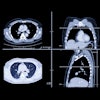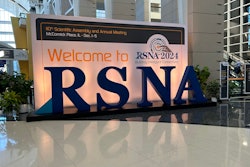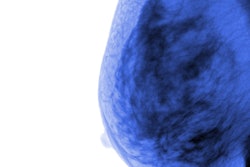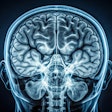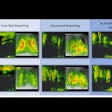
AI alone and AI with one radiologist are on par with radiologist double reading in breast imaging, suggest Swedish findings published September 8 in The Lancet Digital Health.
Researchers led by Karin Dembrower, MD, from Karolinska Institute in Stockholm also found that replacing one radiologist with AI for independent reading of screening mammograms resulted in overall reduced false-positive cases.
"Together with the recent MASAI [Mammography Screening with Artificial Intelligence] study, which used a slightly different implementation of AI, it is safe to say that AI now has the ability to assist and replace radiologist reads for screening mammography," senior author Fredrik Strand, MD, also from the institute, told AuntMinnie.com.
AI continues to show promise in breast cancer screening, with previous studies suggesting it can help detect more cancers as well as reduce false positives. However, most of these are retrospective studies. Radiology researchers continue to call for more prospective studies with large cohorts as the next big step in the technology's movement into everyday clinical workflows.
Dembrower and colleagues sought to do just that in their study, testing the performance of a commercial AI system (Insight, version 1.1.6, Lunit) in the ScreenTrustCAD study. This was a prospective, population-based, paired-reader, noninferiority study performed at the Capio Sankt Göran Hospital in Stockholm, Sweden, between 2021 and 2022. The team wanted to evaluate the noninferiority of double reading by one radiologist plus AI compared with standard-of-care double reading by two radiologists. It also explored single reading by AI alone and triple reading by two radiologists plus AI compared with the European standard-of-care double reading by two radiologists.
The researchers included data from 55,581 women ages 40 to 74 who underwent regular mammography screening. Of these, 269 women (0.5%) were diagnosed with screen-detected breast cancer based on an initial positive read.
The team reported that double reading by one radiologist plus AI detected 261 of these cancers compared with 250 found through double reading by the radiologists, a relative proportion of 1.04 in favor of AI assistance (p < 0.0001). It wrote that this indicates noninferiority.
The researchers also found that single reading by AI was noninferior to standard double reading, detecting 246 of the cancers, with a relative proportion of 0.98. Triple reading by radiologists meanwhile detected all 269 cancer cases.
Finally, in analyzing the performance of AI single reading, the team found that the total number of recalls decreased by 47%. This included a drop from 1,382 false positives in a screening population of 100,000 women to 768.
Strand told AuntMinnie.com that for single-reading settings, it is "especially interesting" to see how the results of a single AI can be very close to that of double-reading, as well as if single reading combined with AI can outperform double-reading.
"We are currently collecting the data after another prospective study, the randomized clinical ScreenTrustMRI, where we examine how AI can help us more precisely select which women, should have supplemental imaging such as MRI or contrast-enhanced mammography [CEM], after negative screening mammography," he said. "In addition, we will continue to explore different implementations, and effects, of AI in the initial screen-reading."
The full study can be found here.




